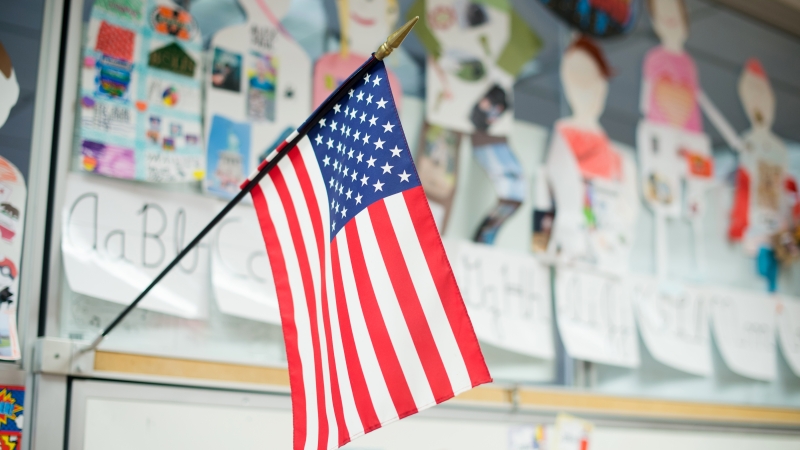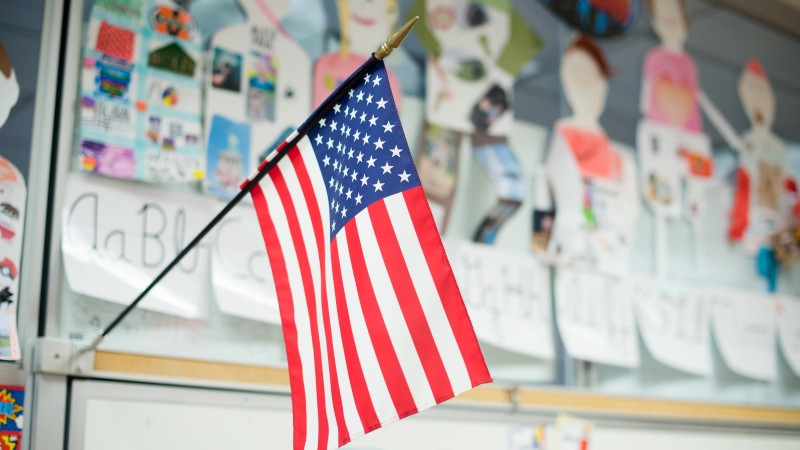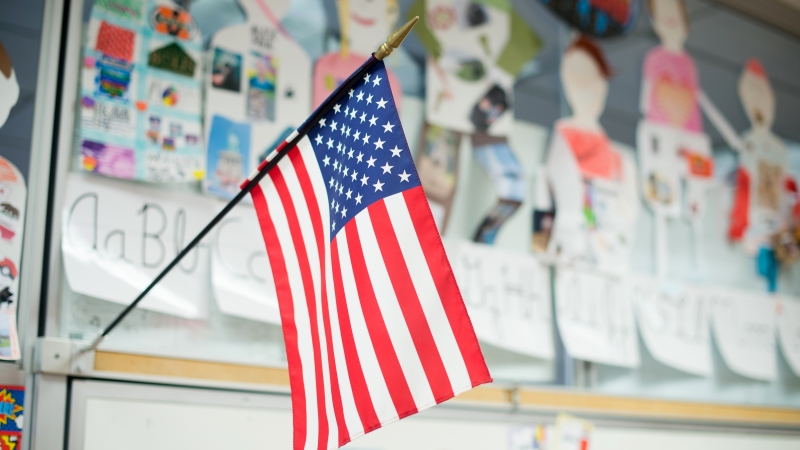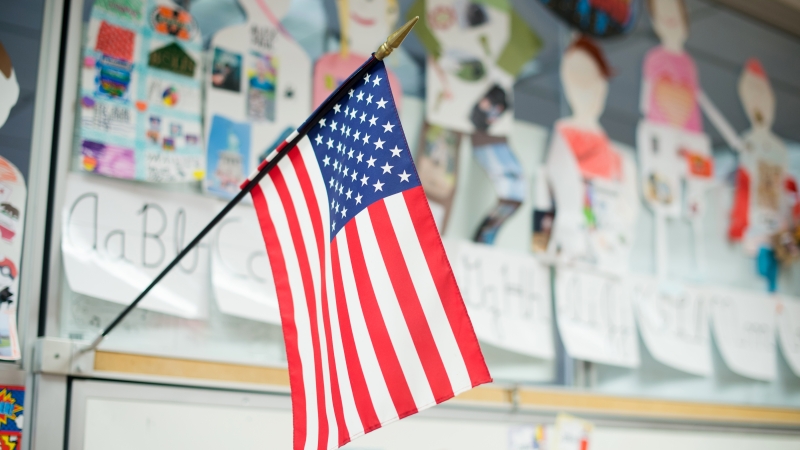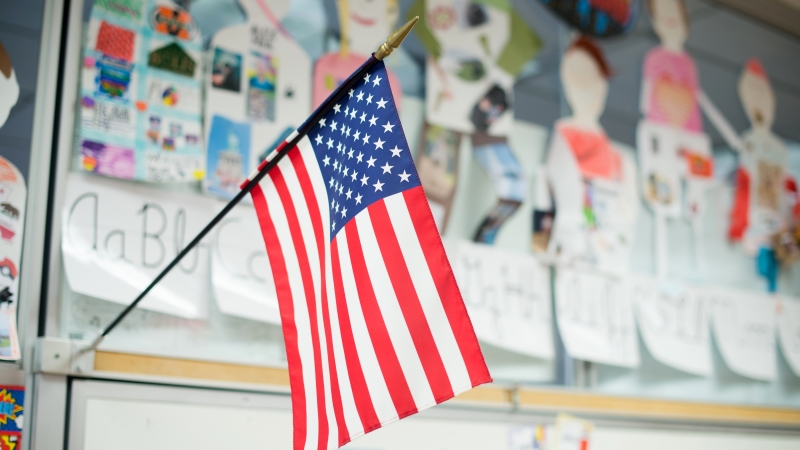
General Assembly Regular Session Adjournment Update
2-26-2019
2019 General Assembly Update
Key Education-Related Subjects
Regular Session Adjournment Update, February 26, 2019
Fairfax County Public Schools, Office of Government Relations
Additional information regarding the education-related legislation described in this Update, as well as for all other bills related to education can be found in the thirteen subject categories located on the web pages of the FCPS Office of Government Relations at https://www.fcps.edu/about-fcps/departments-and-offices/government-relations/virginia-general-assembly. Bills in these categories are linked to the Virginia Division of Legislative Services web pages, which provide up-to-date summary, fiscal impact and bill status information.
Adjournment Sine Die
The 2019 General Assembly Regular Session adjourned on Sunday, February 24th. Some bills from this Session have already been signed by the Governor and become effective on July 1, 2019, unless another date is specifically listed in the legislation (listed below as “Approved”). Bills listed as “Passed House and Senate” now move on to the Governor for his consideration. The Governor can sign, amend, or veto any legislation, including the Budget bill. The Governor’s deadline for action on legislation is March 26, 2019. The General Assembly then returns for a Reconvened Session on April 3, 2019 to consider the Governor’s actions.
STATUS OF SELECT PREVIOUSLY REPORTED BILLS
Cannabidiol Oil and THC-A Oil; Use at School HB 1720 (Hurst) and SB 1632 (Sturtevant) were both amended in a conference committee and would now protect school nurses or other school public health related personnel from prosecution for the possession or distribution of cannabidiol oil or THC-A oil or for storing, dispensing, or administering cannabidiol oil or THC-A oil, in accordance with a policy adopted by the local school board, to a student who has been issued a valid written certification for the use of cannabidiol oil or THC-A oil. In addition, no school board would be required to suspend or expel any student holding a valid written certification for the use of such oils in accordance with a student’s individualized health plan and in compliance with policies adopted by local school boards.
Capstone Project HB 2662 (Landes) was amended and would still direct the Board of Education, in establishing high school graduation requirements, to require students, beginning with first-time ninth grade students in the 2022-2023 school year, to complete a senior capstone project, portfolio, performance-based assessment, or structured experiment that relates to a work-based learning, service-learning, or community engagement activity and aligns with and further develops the knowledge and skills attained through such work-based learning, service-learning, or community engagement activity. However, the legislation now would also require the Board of Education to develop and submit to the Chairmen of the House Committee on Education and the Senate Education and Health no later than November 1, 2019, guidelines for local school boards to develop and implement a senior capstone project, portfolio, performance-based assessment, or structured experiment. In developing such guidelines, the Board of Education would be required to consult with stakeholders representing a variety of local school divisions, industries, and education organizations and shall consider (i) the diversity of school divisions across the Commonwealth, (ii) the need for local flexibility, and (iii) the needs of communities and industries across the Commonwealth. Finally, the legislation now includes a provision that it shall not become effective unless it is reenacted by the 2020 Session of the General Assembly.
Commission on Student Behavioral Health HB 1735 (Robinson) would have created the Commission on Student Behavioral Health as a legislative branch commission. The purpose of the Commission was to (i) assess the efficacy of developing and implementing a statewide behavioral health and suicide prevention hotline that students may use to report threats of violence or receive real-time counseling services; (ii) review the current school counselor-to-student ratio, and whether the realignment of counseling responsibilities proposed by the House Select Committee on School Safety is improving schools' ability to provide counseling services to students; (iii) review the current roles and responsibilities of school nurses, psychologists, and social workers in schools and determine whether a realignment of responsibilities could improve or streamline behavioral health services offered to students; (iv) evaluate the efficacy and costs of providing enhanced behavioral health services in schools delivered through partnerships established between school divisions and local departments of social services and community services boards; (v) assess the effectiveness of de-escalation and other alternative disciplinary policies when interacting with students suffering from behavioral health challenges; (vi) examine the value of additional teacher training requirements on student behavioral health, such as mental health first aid; and (vii) examine other topics related to student behavioral health identified by the Commission. The bill was assigned to a conference committee to reconcile differences between House and Senate versions, but it ultimately did not make it out of the conference.
Dual Enrollment/Career and Technical Education Teacher Licensure SB 1575 (Ebbin) emerged from a conference committee and would add the Chancellor of the Virginia Community College System as an ex officio member of the Advisory Board on Teacher Education and Licensure. In addition, the legislation would provide for the issuance of a three-year license to solely teach career and technical education courses or dual enrollment courses at public high schools in the Commonwealth to any individual who (i) is employed as an instructor by an institution of higher education that is accredited by a nationally recognized regional accreditation body, (ii) is teaching in the specific career and technical education or dual enrollment subject area at such institution in which the individual seeks to teach at a public school, and (iii) complies with the requirements set forth in subdivisions D 1 and 3 of § 22.1-298.1 of the Code of Virginia. The Board of Education would require any such instructor to maintain continuous employment in such position at the institution of higher education as a condition of continued licensure. The provisions of this section would expire on July 1, 2021, however, any license issued pursuant to this act prior to July 1, 2021, shall remain in effect for three years from the date it was issued unless such license is revoked by the Board of Education. In addition, ABTEL would be required to make recommendations relating to licensure qualifications for individuals employed by an institution of higher education (i) to teach career and technical education courses in a high school setting and (ii) to teach dual enrollment courses in a high school setting. In making its recommendations, the Advisory Board would consider the plan, process, and criteria developed by the State Board for Community Colleges pursuant to subdivision 7 of § 23.1-2904 of the Code of Virginia and criteria used by nationally recognized regional higher education accreditation bodies. The Advisory Board shall report its recommendations to the Board of Education and the Chairmen of the House Committee on Education and the Senate Committee on Education and Health no later than December 1, 2019. In addition, the budget includes funding for a Dual Enrollment Faculty Credential Tuition Grant Program (Item 135 #6c) which would provide $250,000 for tuition scholarships to be specifically allocated solely for licensed public high school teachers pursuing additional credentialing requirements necessary to be considered faculty who are qualified to teach dual enrollment courses in high schools in their local school division. HB 2589 (Tran) was similar legislation considered during Session, but it ultimately did not emerge from its conference committee.
Electives on the Hebrew Scriptures/Old Testament and the New Testament SB 1502 (Carrico) would have authorized school divisions to offer electives on the Hebrew Scriptures/Old Testament and the New Testament at their discretion, but the legislation failed in a House Appropriations subcommittee.
Individualized Education Program Teams; Guidelines. HB 1693 (Rodman) and SB 1595 (Dunnavant) ultimately did not pass. They would have required the Department of Education to establish guidelines for individualized education program (IEP) teams to utilize when developing IEPs for children with disabilities to ensure that IEP teams consider the need for age-appropriate and developmentally-appropriate instruction related to sexual health, self-restraint, self-protection, respect for personal privacy, and personal boundaries of others. The bills would have required each local school board, in developing IEPs for children with disabilities, in addition to any other requirements established by the Board, to ensure that IEP teams consider such guidelines.
Reading Diagnostic Tools SB 1718 (Black) was amended and would now direct the Department of Education (the Department) to consult with stakeholders and develop a plan to implement a pilot program to incorporate additional diagnostic tools into reading diagnostic tests used for screening students in kindergarten through grade three. The bill would direct the Department to report to the General Assembly by December 1, 2019.
School Counselors HB 1729 (Landes) has already been signed by the Governor and changes the name of guidance counselors to school counselors and requires each school counselor employed by a school board in a public elementary or secondary school to spend at least 80 percent of his staff time during normal school hours in the direct counseling of individual students or groups of students. A budget amendment, 136 #4c, would add additional flexibility language for school divisions to hire testing coordinators and licensed behavior analysts with At-Risk Add-on funds, which may help reduce workloads of school counselors and free-up the counselors time which then can be dedicated to supporting students' non-academic related needs. SB 1406 (Dance) would require school boards to employ school counselors in accordance with the following ratios: in elementary schools, one hour per day per 75 students, one full-time at 375 students, one hour per day additional time per 75 students or major fraction thereof; in middle schools, one period per 65 students, one full-time at 325 students, one additional period per 65 students or major fraction thereof; and in high schools, one period per 60 students, one full-time at 300 students, one additional period per 60 students or major fraction thereof. Such ratios would be effective with the 2019-2020 school year. HB 2053 (McQuinn) would set student-counselor ratios as follows: in elementary schools, one hour per day per 91 students, one full-time at 455 students, one hour per day additional time per 91 students or major fraction thereof; guidance counselors in middle schools, one period per 74 students, one full-time at 370 students, one additional period per 74 students or major fraction thereof; guidance counselors in high schools, one period per 65 students, one full-time at 325 students, one additional period per 65 students or major fraction thereof. In addition, a budget amendment (Item 136 #6c) funds counselors at a ratio consistent with those set forth in HB 2053. Since the two bills conflict this latter ratio, since it is included as part of the biennial budget, would prevail.
School Health Advisory Committee SB 1142 (Favola) would have required the Board of Education to establish the State School Health Advisory Committee, consisting of no more than 20 nonlegislative citizen members, to advise the Board, the Governor, and the General Assembly on (i) the role of employees in public elementary or secondary schools in providing health care services at such schools and (ii) the need for any training associated with delivery of health care services. However, the legislation did not make it out of a House Rules subcommittee.
School Resource Officer Training HB 2609 (Jones, J.C.) and SB 1130 (Locke) were both amended as part of a committee of conference and would now require 1) the Department of Criminal Justice Services (DCJS) to establish minimum compulsory training standards for certification and recertification of law-enforcement officers serving as school resource officers; 2) every full-time or part-time law-enforcement officer employed as a school resource officer after July 1, 2020, to comply with compulsory minimum training standards for school resource officers established by the Board within a period of time fixed by the Board, and 3) each public school to employ at least one school administrator who has completed, either in-person or online, school safety training for public school personnel conducted by the Virginia Center for School and Campus Safety in accordance with subdivision A 1 of § 9.1-184 (training related to school safety, bullying, and the identification of students at risk for violent behavior). However, such requirement shall not apply if such required training is not available online.
School Safety Mobile Application SB 1608 (Dunnavant) would have required the Virginia Fusion Intelligence Center (the Center) to develop or obtain a school safety mobile application to (i) facilitate the provision of real-time, 24 hours a day, seven days a week crisis intervention services by licensed clinicians, including support or crisis counseling, suicide prevention, and referral services to students and youth in the Commonwealth through calls, texts, and online chats and (ii) provide to students and youth in the Commonwealth a platform that is capable of receiving text, audio, images, or video to furnish information concerning a suspected, anticipated, or completed criminal violation. While the legislation itself failed, a budget amendment (Item 381 #2c) includes funding and directs the Secretary of Public Safety to develop a plan for implementation of a statewide school safety mobile application.
Threat Assessment Case Management Tool SB 1213 (Newman) has already been signed by the Governor and will require the Virginia Center for School and Campus Safety to develop a case management tool for use by public elementary and secondary school threat assessment teams and requires such threat assessment teams to use such tool to collect and report to the Center quantitative data on its activities. HB 1734 (Marshall) is identical and awaits the Governor’s signature. In addition, the budget includes an item (Item 392 #3c) which would allocate approx. $720K to expand training provided to local threat assessment team members as well as for the development of a threat assessment team case management system, consistent with the provisions of HB 1734 and SB 1213.
Virtual Virginia SB 1590 (Dunnavant) would have required that the Virtual Virginia program, be made available to all public schools. Currently, the program is available only to high schools. The bill also would have required the Department to utilize a learning management system for the purposes of implementing Virtual Virginia. The bill also would have authorized the Department to charge a per-student fee to school divisions for each student enrolled in a Virtual Virginia course beyond an initial allotment of 15 such students per school division and prohibits the Department from limiting the total number of such students by school division. While the legislation did not pass, a budget amendment (Item 136 #2c) was included to expand the current Virtual Virginia initiative. The additional general fund allocation for Virtual Virginia will be used within the existing high school model to expand the availability of digital curriculum resources via Virtual Virginia and to provide professional development to divisions which includes best practices facilitating the use of such digital resources. The additional digital resources and professional development will be offered to all school divisions statewide. The new language further directs the Department of Education to develop a plan that establishes a possible per-student, per-course fee schedule for local school divisions to participate in Virtual Virginia (VVA) coursework. The plan must include data reporting on the existing VVA initiative.
BUDGET POLICY ITEMS
In addition to setting forth the Commonwealth’s spending priorities, policy items which may or may not correspond to legislation considered during Session do find their way into the budget. In addition to those that have already been reported above, the following are some of the amendment items with a potential impact on public education:
Active Shooter Training Item 392 #1c would provide $280,000 from the general fund the second year and one position for the Department of Criminal Justice Services to provide annual active shooter trainings to schools and communities.
Community Schools - Best Practices Report Item 135 #5c would require the Department of Education, in consultation with Communities In Schools of Virginia and other relevant stakeholders, to develop, distribute to each local school division, and report to the Governor and General Assembly, no later than November 1, 2019, guidance on best practices for local school divisions to transition existing schools to community schools. Such guidance would be required to include best practices for removing nonacademic barriers to learning as a means to enhance student academic success in public elementary and secondary schools throughout the Commonwealth.
Computer Science Training Item 135 #9c would allocate $550,000 each year from the general fund to CodeVA for the professional development and courses provided to teachers related to computer science learning in the classroom. The amendment would also require CodeVA to report, no later than October 1, each year to the Chairmen of the House Education and Senate Education & Health Committees, Secretary of Education and the Superintendent of Public Instruction on its activities in the previous year to support computer science teacher training and curriculum development, including on collaboration with other stakeholders to avoid duplication of efforts.
Special Education Private Day Schools, Outcome Measures Item 129 #1c would direct the Department of Education (DOE) to collect and report data that measures the progress and outcomes of students that are placed in special education private day schools and annually report on these data to legislative committees by the first day of the regular General Assembly Session. Language would require DOE and Office of Children's Services to collaborate with an advisory group to assist in refining the outcome measures and the collection of any additional data, as necessary, and enter into a Memorandum of Understanding to share data on student outcomes in special education private day schools.
Student Survey, Civics Education Item 134 #1c would provide funding for a brief questionnaire survey to be administered to approximately 500 high school students regarding civics education.
Teacher Licensure Application Process Modernization Item 133 #2c would capture savings associated with the planned automation of the teacher licensure application and intake process as provided for in the Governor’s Introduced budget.
As is the case with all other legislation passed during the General Assembly session, the General Assembly will consider the Governor’s vetoes or amendments to the Budget at the reconvened scheduled for April 3, 2019.
